In the complex tapestry of South Asian geopolitics, the recent upheaval in Bangladesh has drawn the focused attention of India, a nation that has historically intertwined its destiny with that of its eastern neighbor. In an official statement reflecting on the impending elections in Bangladesh, India has taken a stance that transcends mere diplomacy, signaling a significant shift in its approach to what it terms the ‘internal affairs’ of its counterpart. The dynamics surrounding Prime Minister Sheikh Hasina’s potential fall from power have not onyl raised questions about Bangladesh’s political future, but have also prompted India to navigate the delicate balance between non-interference and strategic interest.This article delves into the nuances of India’s reaction to the evolving political landscape in Bangladesh, exploring how internal electoral challenges in Dhaka have sparked a recalibration of India’s foreign policy and engagement in the region. Through this lens, we examine the implications of india’s involvement in its neighbor’s political processes and what it means for the broader stability of South Asia.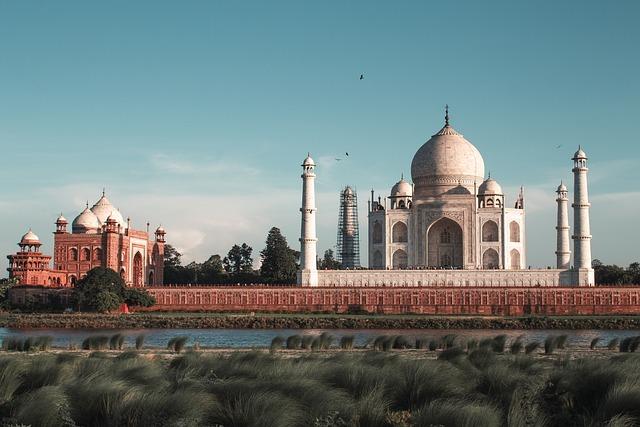
India’s Strategic Posture: Assessing the Implications of Bangladesh’s Political Turmoil
As Bangladesh navigates through its political turmoil, particularly in the wake of Prime Minister Sheikh Hasina’s potential downfall, India’s strategic positioning in relation to its neighboring country is undergoing significant reevaluation. The implications of this internal crisis extend beyond Bangladesh’s borders, forcing India to consider how the instability could impact its own security and geopolitical interests. Key factors influencing India’s outlook include:
- Regional Stability: Any upheaval in Bangladesh could lead to increased unrest in the surrounding areas, impacting India’s northeastern states that share a border with Bangladesh.
- Economic Concerns: A politically unstable Bangladesh may disrupt trade routes and economic ties vital for both nations, potentially hindering India’s economic ambitions in South Asia.
- Security Challenges: The rise of radical elements during a political vacuum could pose a security threat, prompting India to reassess its counter-terrorism strategies in the region.
Bangladesh’s instability also raises questions about India’s diplomatic strategies. traditionally, India has maintained a delicate balance by supporting Hasina’s government while promoting democratic processes. However, should the political landscape shift dramatically, India may be compelled to reconsider its approach. This could manifest in several ways:
| potential Actions | Strategic Goals |
|---|---|
| Strengthening Ties with Opposition | Position India favorably in future governance scenarios in Bangladesh. |
| Enhancing Border Security Measures | Prevent spillover of violence and unrest into Indian territory. |
| Increasing Humanitarian Aid | Alleviate economic hardships and win public favor in Bangladesh. |
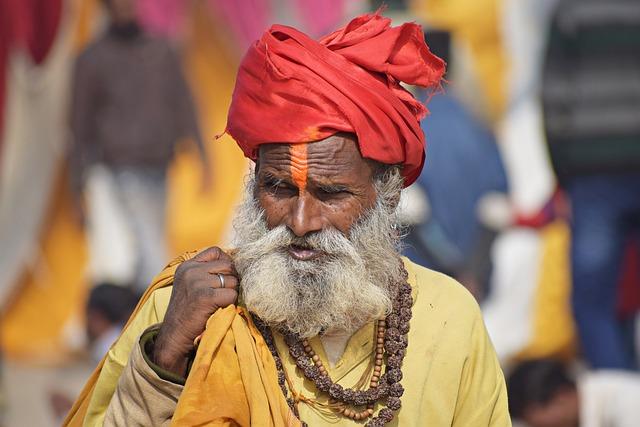
The Rise and Fall of Sheikh Hasina: Analyzing the Impact on Regional Stability
The political landscape of Bangladesh has been profoundly shaped by Sheikh Hasina’s leadership, heralding both progress and controversy. Since taking office,Hasina’s tenure has witnessed significant economic growth,yet her governance style has drawn criticism for authoritarian tendencies. As her regime faced increasing scrutiny, especially in light of the volatile electoral process, it cultivated a perception of instability both domestically and in the broader south Asian region. The implications of her leadership have extended far beyond Bangladesh’s borders, prompting crucial responses from neighboring India, which has historically considered its stability intertwined with that of Bangladesh. This concern became pronounced, as violent protests and allegations of electoral malpractice prompted calls for a closer examination of Bangladesh’s “internal affairs.”
India’s official statements on the political turmoil following Hasina’s decline signaled a pivotal shift in its foreign policy approach towards Bangladesh. Recent developments have led India to overtly express its stance on the electoral credibility and governance in Bangladesh, a move that marks a significant departure from its previous policy of non-interference. The fallout of Hasina’s governance has thus opened a Pandora’s box,where India’s vested interests in regional stability compelled it to navigate the delicate balance between support for democratic principles and its strategic alliances.This evolving dynamic underscores the intricate web of political relations in South Asia, where domestic governance challenges can rapidly escalate into broader geopolitical concerns. The ramifications of this shift will likely reverberate through regional alliances and influence future interactions between India and Bangladesh.
| Key Events | Impact on Regional Stability |
|---|---|
| Sheikh Hasina’s Election Victory | Initial economic growth, bolstered ties with India |
| Allegations of Electoral Fraud | Increased domestic unrest, strained political relations |
| India’s Intervention Statements | Shift in policy, raised concerns about sovereignty |
| Hasina’s Governance Challenges | Heightened tensions in regional diplomacy |

India’s Diplomatic Balancing Act: Navigating Internal Affairs and Foreign Relations
In the complex web of South Asian politics, India’s approach to neighboring Bangladesh illustrates a delicate balance between supporting regional allies and respecting national sovereignty. As Prime Minister Sheikh Hasina’s government faces increasing scrutiny and challenges within Bangladesh, New Delhi has found itself in a position where the internal dynamics of its eastern neighbor have considerable implications for its own diplomatic strategy. While India traditionally advocates for non-interference in the internal affairs of sovereign nations, the potential fallout from Hasina’s possible political decline raises the stakes substantially.This shift propels Bangladesh’s situation from being merely an internal matter into a focal point of Indian diplomatic considerations.
India’s strategy may now pivot towards engaging with various political factions in Bangladesh to ensure stability and continuity in bilateral relations, which have long been characterized by cooperation in areas such as trade, security, and cultural exchange. This nuanced response involves:
- strengthening ties with opposition parties to foster a more inclusive political dialog.
- Monitoring civil unrest closely, as internal turmoil may lead to refugee crises or security threats spilling over the border.
- Enhancing economic partnerships to cushion the impact of potential political upheaval, ensuring that both nations reap mutual benefits.
Ultimately, India’s navigation of Bangladesh’s tumultuous political landscape requires not just diplomatic finesse but also an awareness of its broader implications in regional geopolitics. Should the equilibrium shift dramatically, India may have to reassess its commitment to the principle of non-intervention in favor of a more active role in maintaining stability in the region.
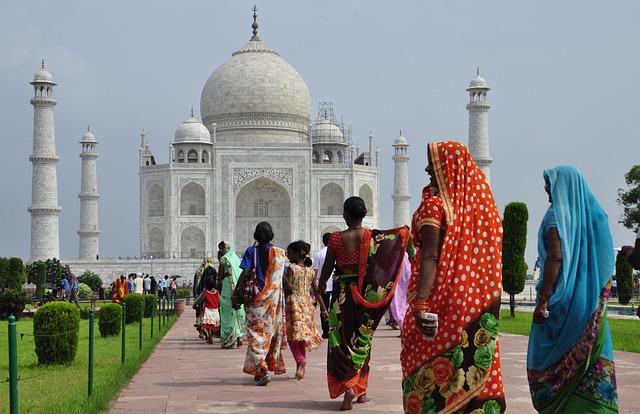
recommendations for India: Enhancing Engagement and Support for Democratic Processes
The evolving political landscape in Bangladesh serves as a significant reminder for India on the imperative of proactive diplomatic engagement in its regional neighborhood. To enhance its support for democratic processes in Bangladesh, India should actively promote dialogue between diverse political entities to foster a more inclusive political culture. An emphasis on civil society involvement in monitoring elections could also ensure transparency and build public trust in the democratic process. Strengthening partnerships with international organizations specializing in electoral democracy will further bolster india’s commitment to good governance in the region.
Moreover, establishing a framework for knowledge sharing and technical assistance in electoral processes could empower local institutions to uphold democratic norms. Initiatives focusing on capacity building for the judiciary and law enforcement agencies would also contribute significantly to the integrity of electoral procedures. Building a robust network of multilateral cooperation can facilitate a consensus-driven approach to electoral reforms, ensuring that the commitments to uphold democracy are not only upheld but reinforced, ultimately creating a resilient regional community that thrives on democratic principles.
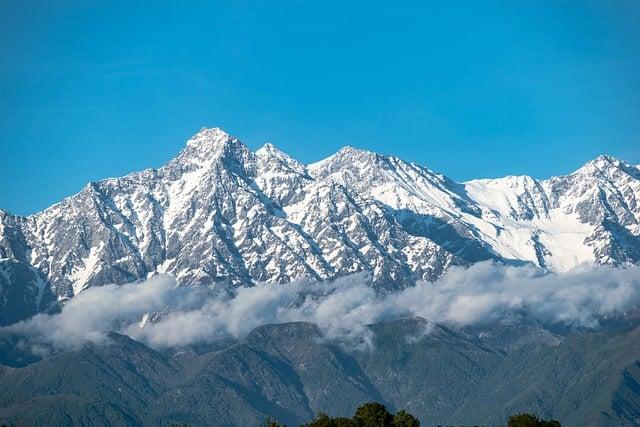
The Role of Regional powers: Bangladesh’s Election Outcome in a Geopolitical Context
The recent electoral outcome in Bangladesh has attracted significant attention from regional powers, particularly India, reflecting the intricate web of geopolitical dynamics in South Asia. The potential shift in Bangladesh’s political landscape with the anticipated fall of Prime Minister Sheikh Hasina raises critical questions regarding India’s influence in the region. Key factors shaping India’s response include:
- Security Concerns: A change in leadership may embolden anti-India sentiment, impacting border security and insurgent activities.
- Economic ties: Bangladesh is crucial for India’s Look East policy, serving as a gateway for trade with Southeast Asia.
- Strategic Partnerships: India’s desire to counterbalance China’s growing presence in Bangladesh intensifies its interest in the election outcomes.
As the situation unfolds,India’s diplomatic maneuvering will likely be aimed at preserving its interests while advocating for stability. A potential new government in Dhaka could alter the balance of power, compelling India to recalibrate its foreign policy strategies. In this context, examining past electoral trends reveals a pattern of regional interactions that will influence how the next government engages with India.Critical elements influencing future dynamics may include:
| Factor | Impact on India-Bangladesh Relations |
|---|---|
| Political Alliances | Potential alignment with anti-India parties could create friction. |
| Economic Policies | Shifts in trade policies may affect bilateral trade volume. |
| Security Agreements | Changes in military cooperation could impact regional security frameworks. |
Future Scenarios: Predicting Bangladesh’s Political Landscape and India’s Response
The political future of Bangladesh remains precarious, especially as electoral tensions rise leading up to the next elections. Prime Minister Sheikh Hasina’s management,having been in power for over a decade,is facing increasing dissent and challenges from opposition forces. In such a scenario, various factors could influence the political landscape, including:
- Opposition Unity: If the fragmented opposition can coalesce around a common candidate or agenda, it could threaten the ruling party’s hold on power.
- Public Sentiment: Growing public disillusionment with economic conditions and governance could spark widespread protests.
- International Pressure: Foreign entities, including organizations and nations concerned about democratic practices, may significantly impact bangladesh’s political dynamics.
Simultaneously, the implications of a potential political shift in Bangladesh extend beyond its borders, particularly affecting India’s strategic interests in the region. Historically, India has viewed Bangladesh as a crucial ally, and its response to any significant political change will be indicative of this relationship.key considerations for india’s response could include:
- Security Concerns: Any instability in Bangladesh could lead to spillover effects that threaten India’s northeastern states.
- Geopolitical Strategy: India may seek to bolster new alliances within Bangladesh to counteract influence from other regional powers.
- Diplomatic Engagement: increased dialogue with Bangladeshi political groups, regardless of thier affiliation, could be necessary to maintain influence.
The Conclusion
India’s recent statement regarding the electoral situation in Bangladesh underscores the intricate dynamics of regional politics in South Asia. As Prime Minister Sheikh Hasina’s tenure faces scrutiny, the implications of her potential fall resonate far beyond the borders of Bangladesh, drawing india deeply into what was once considered a matter of internal affairs. This growth not only reflects India’s vested interest in its neighbor’s stability but also raises pertinent questions about sovereignty, interventionism, and the broader geopolitical landscape. As both nations navigate these turbulent waters, the unfolding situation calls for keen observation and analysis, highlighting the interconnectedness of political trajectories in the region. The coming months will be crucial in determining how this evolution influences bilateral relations and the overall stability of South Asia.


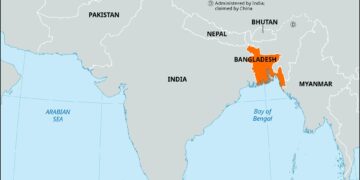


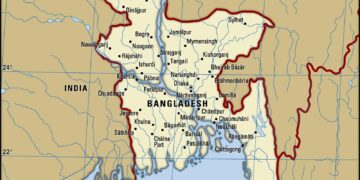




![[Expired] [Award Alert] U.S. Cities to São Paulo, Brazil From 50K Miles in Business Class – Upgraded Points](https://capital-cities.info/wp-content/uploads/2025/07/149760-expired-award-alert-us-cities-to-sao-paulo-brazil-from-50k-miles-in-business-class-upgraded-points-120x86.jpg)




Upcoming Polls Set to Be Bangladesh’s Most Credible Ever, Says Yunus’ Aide Shafiqul Alam